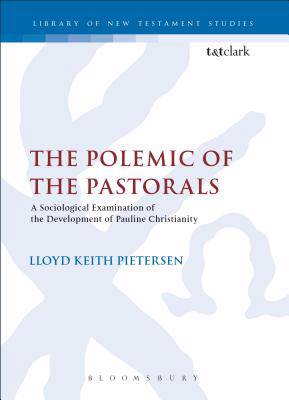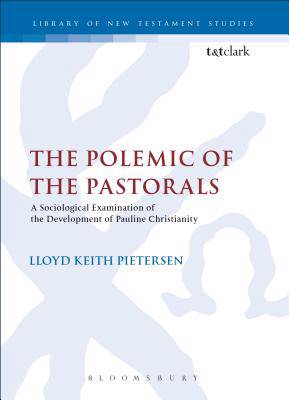
- Afhalen na 1 uur in een winkel met voorraad
- Gratis thuislevering in België vanaf € 30
- Ruim aanbod met 7 miljoen producten
- Afhalen na 1 uur in een winkel met voorraad
- Gratis thuislevering in België vanaf € 30
- Ruim aanbod met 7 miljoen producten
Zoeken
The Polemic of the Pastorals
A Sociological Examination of the Development of Pauline Christianity
Lloyd Keith Pietersen
€ 390,45
+ 780 punten
Omschrijving
Much historical-critical work on the opponents in the Pastoral Epistles has resulted in sweeping generalizations concerning their Jewish and/or Gnostic nature. Literary analyses have been somewhat more promising in focusing on the stereotypical nature of the polemic, but either fail to do justice to the urgency of the language in the Pastorals or do not provide a convincing description of the opponents.
Here Pietersen approaches the problem of the opponents from a socio-scientific perspective. Utilizing labeling theory and social control theory from the sociology of deviance, he argues that the Pastorals function as a literary version of a status degradation ceremony whereby previously influential insiders within the community are transformed into outsiders.
Here Pietersen approaches the problem of the opponents from a socio-scientific perspective. Utilizing labeling theory and social control theory from the sociology of deviance, he argues that the Pastorals function as a literary version of a status degradation ceremony whereby previously influential insiders within the community are transformed into outsiders.
Specificaties
Betrokkenen
- Auteur(s):
- Uitgeverij:
Inhoud
- Aantal bladzijden:
- 192
- Taal:
- Engels
- Reeks:
- Reeksnummer:
- nr. 264
Eigenschappen
- Productcode (EAN):
- 9780567081834
- Verschijningsdatum:
- 27/05/2004
- Uitvoering:
- Hardcover
- Formaat:
- Genaaid
- Afmetingen:
- 157 mm x 243 mm
- Gewicht:
- 435 g

Alleen bij Standaard Boekhandel
+ 780 punten op je klantenkaart van Standaard Boekhandel
Beoordelingen
We publiceren alleen reviews die voldoen aan de voorwaarden voor reviews. Bekijk onze voorwaarden voor reviews.








